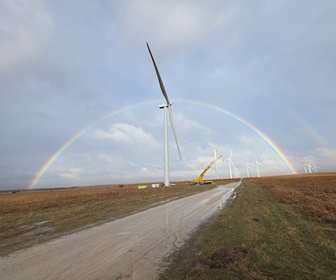The Massachusetts Department of Environmental Protection and the Massachusetts Department of Public Health published recently a scientific study on health impacts of wind turbines. The study was undertaken by a panel of independent experts "to identify any documented or potential health impacts of risks that may be associated with exposure to wind turbines, and, specifically, to facilitate discussion of wind turbines and public health based on scientific findings".
No scientific evidence could be found that the so called "wind turbine syndrome" exists. However, the authors suggests that negative attitude against wind turbines should be mitigated by best practices as successfully implemented in many parts of the world. Such best practices in wind farm planning should include proper siting, provision of information and community involvement, all of which can minimize negative impacts and maximize benefits from wind power.
No scientific evidence could be found that the so called "wind turbine syndrome" exists. However, the authors suggests that negative attitude against wind turbines should be mitigated by best practices as successfully implemented in many parts of the world. Such best practices in wind farm planning should include proper siting, provision of information and community involvement, all of which can minimize negative impacts and maximize benefits from wind power.









